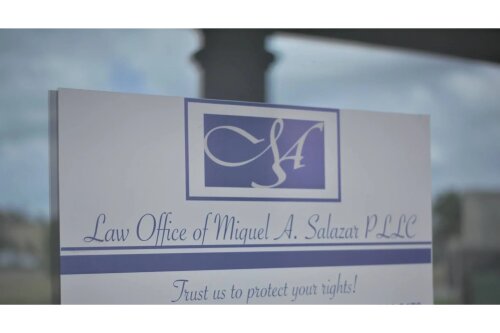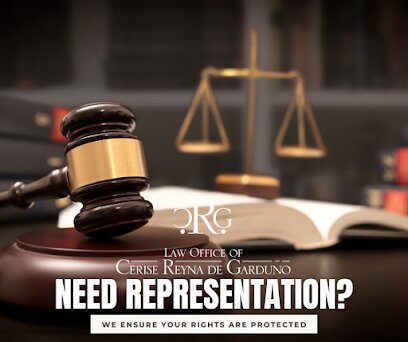Best Car Accident Lawyers in Indiana
Share your needs with us, get contacted by law firms.
Free. Takes 2 min.
Or refine your search by selecting a city:
List of the best lawyers in Indiana, United States
About Car Accident Law in Indiana, United States
Car accident law in Indiana covers the rules, rights, and responsibilities of drivers, passengers, and pedestrians involved in motor vehicle collisions. These laws govern how fault is determined, what compensation injured parties may recover, and the procedures for resolving disputes. Indiana is primarily an at-fault state, meaning the person responsible for causing the accident is also typically liable for the damages that result. Whether your accident involves cars, trucks, motorcycles, or pedestrians, understanding your legal options is essential to protecting your rights and accessing potential compensation.
Why You May Need a Lawyer
After a car accident, victims often face physical injuries, emotional stress, and financial strain. Consulting an attorney can be especially valuable if:
- Your injuries are serious or will lead to ongoing medical treatment or disability.
- Liability is disputed or multiple parties are involved.
- The insurance company denies your claim or offers an inadequate settlement.
- There are complicated insurance issues, such as multiple policies or uninsured motorists.
- The accident involved commercial vehicles, government vehicles, or rideshare drivers.
- You are facing a lawsuit or need to bring one to recover damages.
- You have questions about your rights or the legal process.
An experienced car accident lawyer can help investigate your case, communicate with insurers, calculate damages, and represent you in negotiations or court.
Local Laws Overview
Indiana’s car accident laws include specific statutes and regulations that impact how claims are handled:
- Fault-Based System: Indiana follows a fault-based (tort) system. The at-fault driver is responsible for the damages caused in an accident.
- Comparative Fault Rule: Indiana uses a modified comparative fault rule. You can recover damages if you are less than 51 percent at fault, but your compensation is reduced by your percentage of fault.
- Statute of Limitations: You must file a lawsuit for personal injury or property damage within two years of the accident date. Missing this deadline can bar you from recovering damages.
- Reporting Requirements: Indiana law requires that accidents with injury, death, or property damage exceeding $1,000 must be reported to law enforcement immediately.
- Minimum Insurance Requirements: Drivers must carry liability insurance with minimums of $25,000 per person for bodily injury, $50,000 per accident, and $25,000 for property damage.
- Uninsured/Underinsured Motorist Coverage: Policies issued in Indiana must offer uninsured and underinsured motorist coverage, although policyholders may reject it in writing.
Frequently Asked Questions
What should I do immediately after a car accident in Indiana?
Check for injuries and call 911 if anyone is hurt. Move to a safe location if possible, exchange information with other parties, take photos of the scene, and file a police report if required. Notify your insurer promptly.
Who decides who is at fault for the accident?
Fault is usually determined by insurance company adjusters based on police reports, evidence, and witness statements. In some cases, fault issues are decided by the courts.
Will I have to go to court for a car accident claim?
Most car accident claims in Indiana are resolved through insurance settlements out of court. However, if liability or compensation is disputed, a lawsuit may be necessary.
How long do I have to file a lawsuit after a car accident?
Indiana law gives you two years from the date of the accident to file a lawsuit for personal injuries or property damage.
What compensation can I recover after a car accident?
You may be entitled to damages for medical expenses, lost wages, pain and suffering, property damage, and, in rare cases, punitive damages.
What if I am partially at fault for the accident?
Under Indiana’s comparative fault law, you can still recover damages if you are less than 51 percent at fault, but your recovery will be reduced based on your share of fault.
Is Indiana a no-fault insurance state?
No, Indiana is an at-fault state, meaning the party responsible for causing the accident is liable for the resulting damages.
Do I need to report every accident to the police?
Indiana law requires drivers to report accidents that result in injury, death, or property damage over $1,000. Failing to report can result in penalties.
What if the other driver is uninsured?
Your own uninsured motorist coverage may provide compensation if the at-fault driver does not have insurance. You can also pursue a claim against the driver, though recovery may be difficult.
How can a lawyer help with my car accident case?
An attorney can advise you on your rights, gather evidence, deal with insurance adjusters, negotiate for a fair settlement, or represent you in court if needed.
Additional Resources
- Indiana Bureau of Motor Vehicles - Information on driver licensing, accident reports, and vehicle registration.
- Indiana Department of Insurance - Guidance on insurance requirements and consumer complaints.
- Indiana State Police - Accident report requests and public safety resources.
- Indiana Bar Association - Offers lawyer referral services and legal information for the public.
- National Highway Traffic Safety Administration (NHTSA) - Provides data and safety tips relevant to Indiana drivers.
Next Steps
If you have been involved in a car accident in Indiana, start by ensuring your safety and following the required legal steps, including reporting the accident and obtaining medical care. Gather all documentation, such as police reports, photos, and medical records. Notify your insurance company promptly.
If you have questions about your rights or are facing challenges recovering compensation, consider speaking with a lawyer who specializes in car accident cases in Indiana. Many attorneys offer free consultations to review your case and advise you of your options. Consulting a professional can help you protect your rights and pursue the best outcome for your situation.
Lawzana helps you find the best lawyers and law firms in Indiana through a curated and pre-screened list of qualified legal professionals. Our platform offers rankings and detailed profiles of attorneys and law firms, allowing you to compare based on practice areas, including Car Accident, experience, and client feedback.
Each profile includes a description of the firm's areas of practice, client reviews, team members and partners, year of establishment, spoken languages, office locations, contact information, social media presence, and any published articles or resources. Most firms on our platform speak English and are experienced in both local and international legal matters.
Get a quote from top-rated law firms in Indiana, United States — quickly, securely, and without unnecessary hassle.
Disclaimer:
The information provided on this page is for general informational purposes only and does not constitute legal advice. While we strive to ensure the accuracy and relevance of the content, legal information may change over time, and interpretations of the law can vary. You should always consult with a qualified legal professional for advice specific to your situation.
We disclaim all liability for actions taken or not taken based on the content of this page. If you believe any information is incorrect or outdated, please contact us, and we will review and update it where appropriate.
Browse car accident law firms by city in Indiana
Refine your search by selecting a city.














